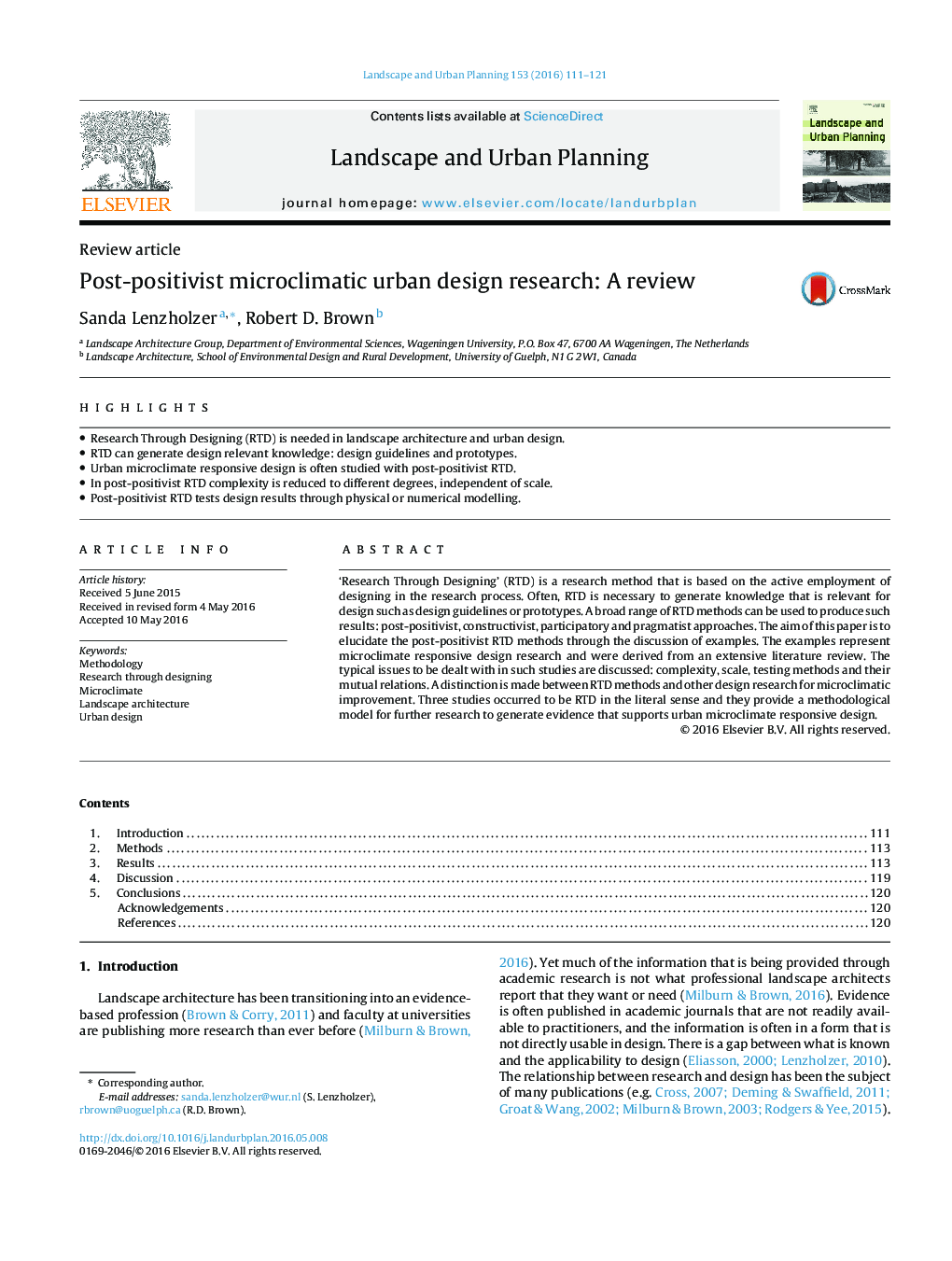| Article ID | Journal | Published Year | Pages | File Type |
|---|---|---|---|---|
| 7460504 | Landscape and Urban Planning | 2016 | 11 Pages |
Abstract
'Research Through Designing' (RTD) is a research method that is based on the active employment of designing in the research process. Often, RTD is necessary to generate knowledge that is relevant for design such as design guidelines or prototypes. A broad range of RTD methods can be used to produce such results: post-positivist, constructivist, participatory and pragmatist approaches. The aim of this paper is to elucidate the post-positivist RTD methods through the discussion of examples. The examples represent microclimate responsive design research and were derived from an extensive literature review. The typical issues to be dealt with in such studies are discussed: complexity, scale, testing methods and their mutual relations. A distinction is made between RTD methods and other design research for microclimatic improvement. Three studies occurred to be RTD in the literal sense and they provide a methodological model for further research to generate evidence that supports urban microclimate responsive design.
Related Topics
Life Sciences
Agricultural and Biological Sciences
Ecology, Evolution, Behavior and Systematics
Authors
Sanda Lenzholzer, Robert D. Brown,
